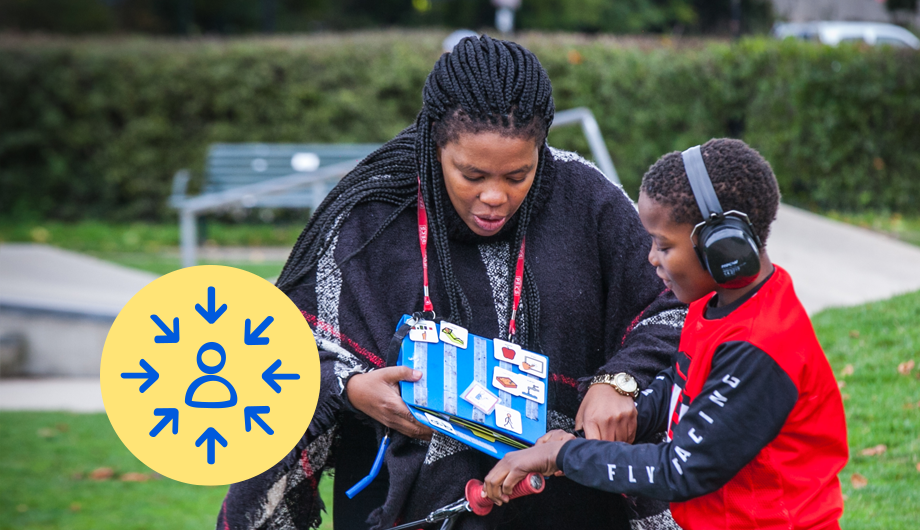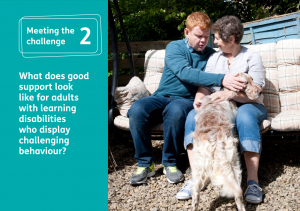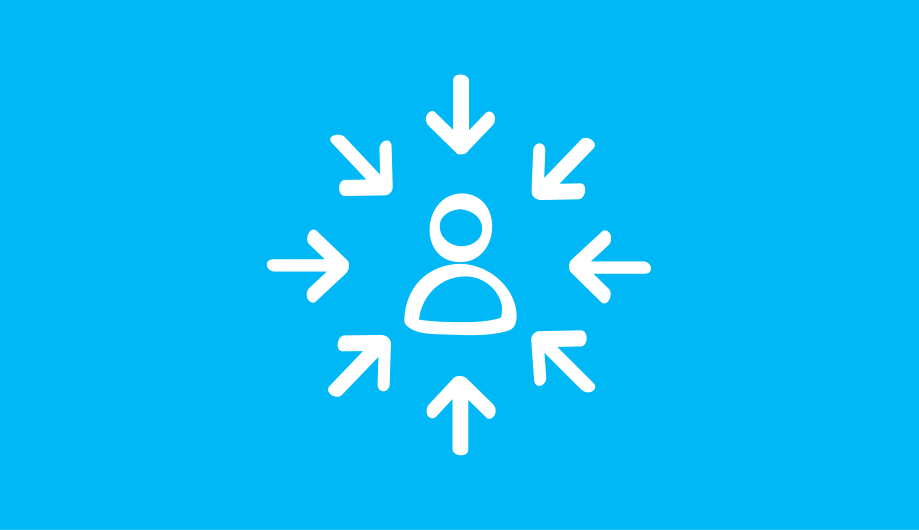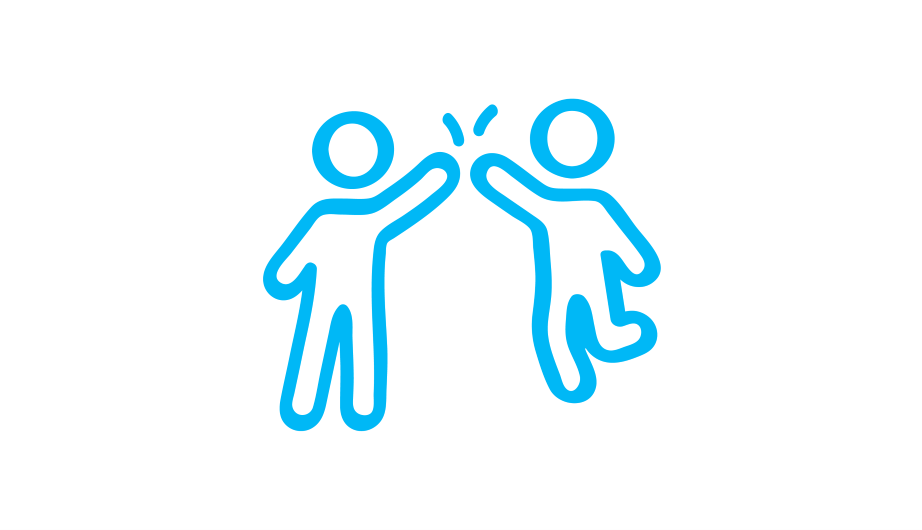
Read past copies of our Challenge Newsletter
You can find editions of our Challenge Newsletter from the last five years on our news page.

Our resources give information about different aspects of communication and teaching new skills, support packages, transition planning and planning for the future.
All children, young people and adults have the right to receive person–centred support and services that are developed on the basis of a detailed understanding of their support needs, including their communication needs. This will be individually-tailored, flexible, responsive to changes in individual circumstances and delivered in the most appropriate local situation.
Consult the resources below in our ‘person-centred support’ section:
Many people with learning disabilities find some parts of communicating hard. Some people may have little or no language. They might find it hard to:
If you can’t tell other people what you want (or don’t want!) challenging behaviour can be more likely. Making communication better can reduce challenging behaviours. Consult our quick read guide and download the information sheet:
Read the communications-related articles taken from previous editions of our newsletter, Challenge:
Clear communication is the key
Children, young people and adults with severe learning disabilities may not learn in the same way as other people – they cannot pick up things as easily and may require a lot of support to learn new skills. If the person also displays challenging behaviours, their opportunities to learn may also be reduced. However, the opportunity to learn new skills can be crucial to giving people greater independence and choice, helping to communicate their needs and allowing them to try new things.
Consult our quick read guide and download the information sheet:
For some families, spending time at home unexpectedly with your relative who has a severe learning disability can be difficult. For others, accessing the community may be difficult and so they may spend a lot of time at home. This information sheet contains activities to do at home to fill the time, keep your loved ones occupied and help to maintain calm, happy relationships. This resource was developed during the Covid-19 pandemic, when we all had to spend some time isolating at home. So, these are also activities to do when we might need to stay at home unexpectedly, for example in extreme weather such as snow.
Activity ideas for children and adults
We all think about the future, some of us more than others. When your relative has severe learning disabilities and displays challenging behaviour, their needs will be more complex. Because of this it is a good idea to plan ahead and to think of all possibilities, especially during transition to adult services or if moving to a house or flat which will require staff.
Consult our quick read guide and download the information sheet:
Information packs for families faced with their relative’s transition to adult services or moving from one type of care placement to another. The packs are available for England, Wales and Northern Ireland.
Read our ten top tips for getting the best support package. This page and information sheet is for family carers to ensure good support and services for adults (over the age of 18) with severe learning disabilities whose behaviour challenges.
Consult our quick read guide and download the information sheet:
Getting the best support package
Watch our short video clip ‘Routines’ which features Debbie, a family carer, who talks about the importance of routines and the use of visual planners.
Watch our video clip about routines
 Meeting the Challenge
Meeting the ChallengeOne of the ‘Meeting the Challenge’ guides produced by the Challenging Behaviour Foundation, alongside Mencap and Respond. This factsheet describes what ‘good support’ should include for people with learning disabilities whose behaviour is described as challenging. Good support will help the person lead a full, active life and help avoid challenging behaviour escalating into a crisis.
Meeting the Challenge 2: What does good support look like
Everybody Matters is a short film starring Colleen and Shaun, both of whom have learning disabilities and have been described as displaying challenging behaviour. This has meant that in the past both Shaun and Colleen have experienced poor support and had restricted, unhappy and sometimes unsafe lives. Their stories show that everyone can be supported to live a full and active life in their community.
Find out more and watch the trailer
This pack of resources aims to provide information about Positive Behavioural Support (PBS). It explains what it is; what it looks like in practice; provides questions to ask to check that PBS is being delivered well in the setting you are looking at and guidance on how family carers can find out more including advice on training.
Read more about: PBS – An information pack for family carers
A very practical tool from the CBF for both professional advocates and family carers advocating on behalf of their family member. This resource aims to provide a practical tool for advocates in supporting a person with behaviour described as challenging, to enable them to exercise their rights to the same life opportunities as everyone else.
Find out more and order a copy in our shop
Produced in partnership with the Social Care Institute for Excellence these guides set out how to get the right support for your relative.
At a glance guide to ‘Getting the right support for children’
At a glance guide to ‘Getting the right support for teenagers’
At a glance guide to ‘Getting the right support for adults’
We also have resources aimed at policy audiences, including the briefings below. Produced collaboratively with a range of other learning disability and autism organisations, these briefings set out the importance of good community support, what is needed, and some case studies.

You can find editions of our Challenge Newsletter from the last five years on our news page.

Quick read guide on teaching new skills with a complete information sheet available to download, which includes strategies for learning new activities and communication and coping skills.

Information packs for families faced with their relative’s transition to adult services or moving from one type of care placement to another. The packs are available for England, Wales and Northern Ireland.